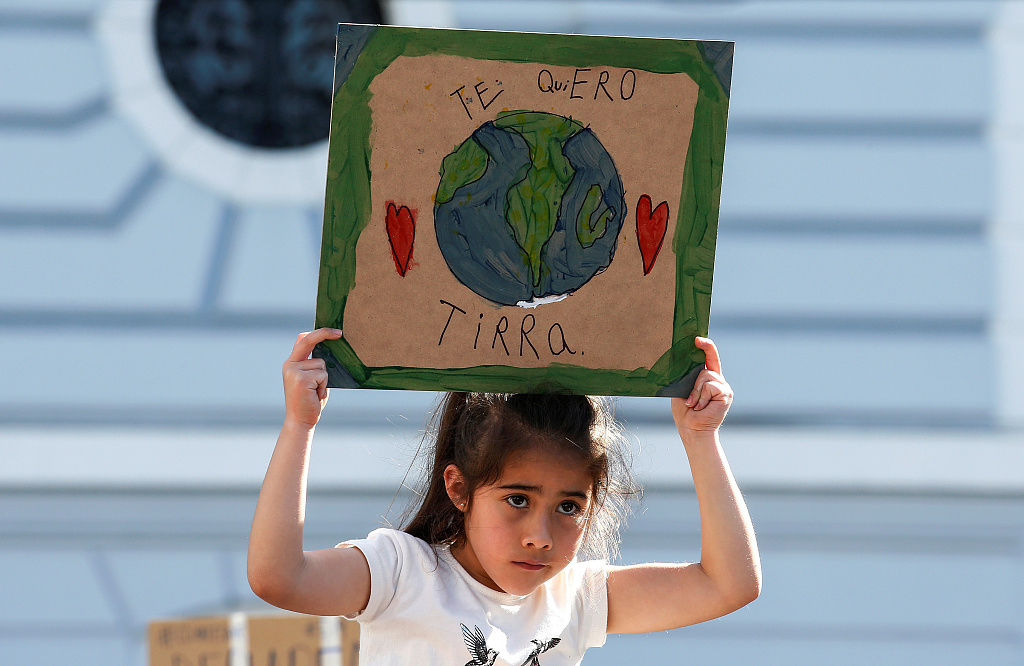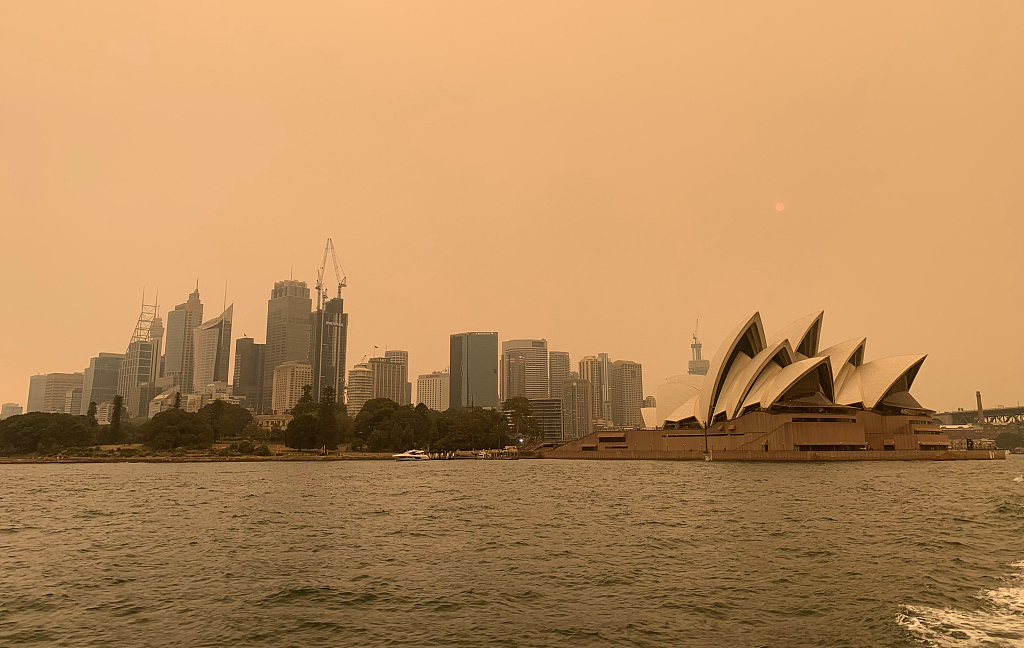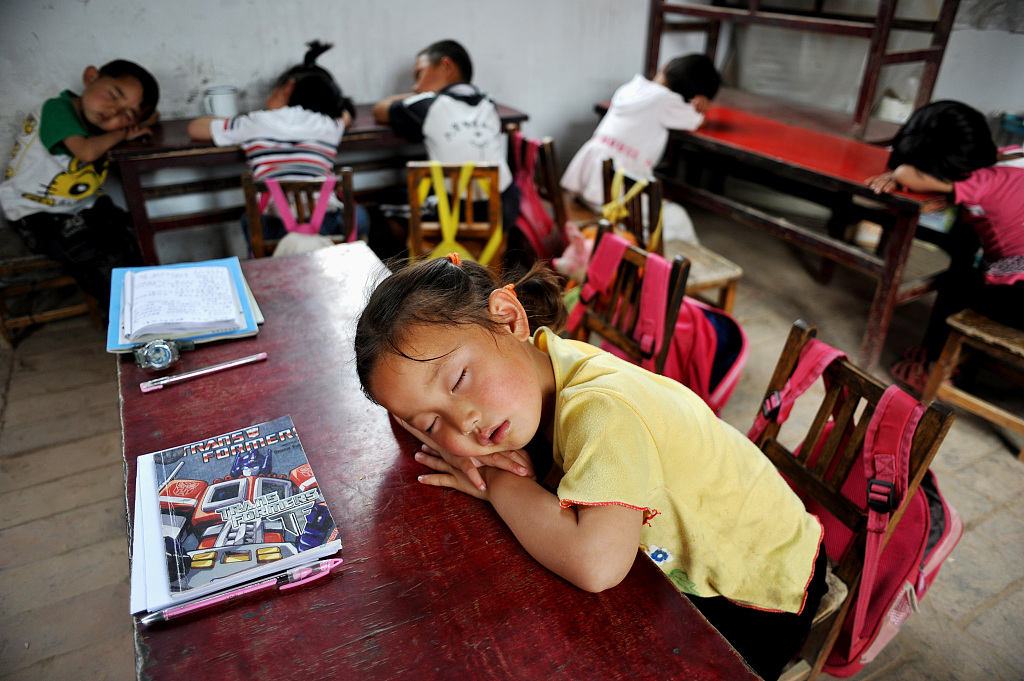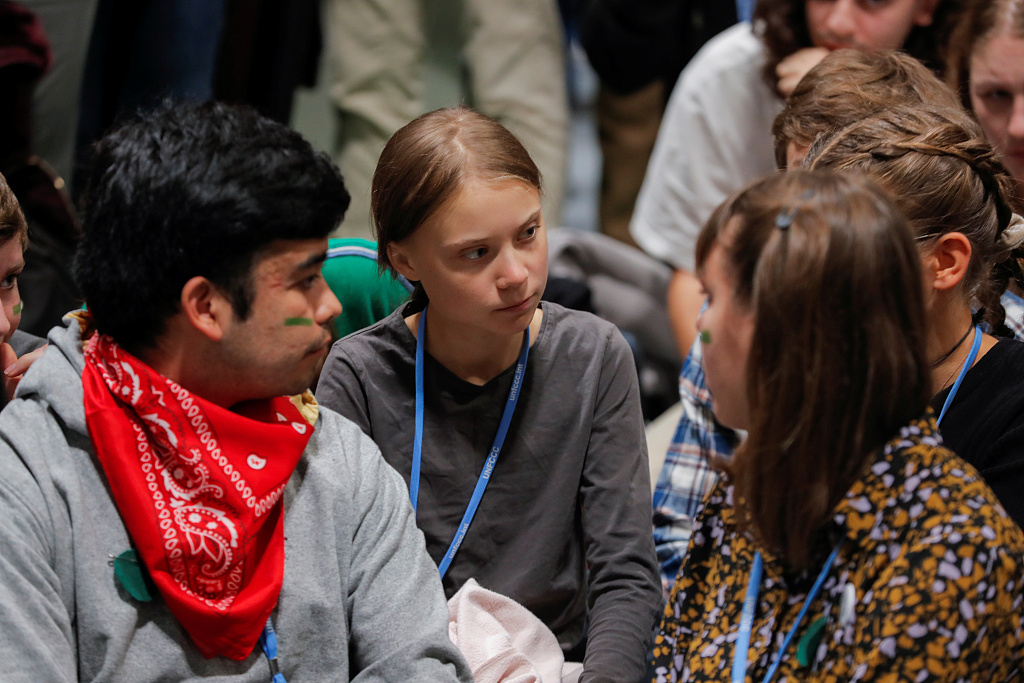Recent events have residents in New Delhi visiting fresh-air bars to access pure oxygen, while in Australia, many are dealing with another mega blaze as a result of extreme heat.
Is climate change to blame? Behind the oxygen purchases and risk of lost homes, the implications can have massive on the economic and social lives of people around the world.

The sign reads: "I love you Earth." A girl takes part in a protest against climate change ahead of the 2019 United Nations Climate Change Conference also known as COP25, in Valparaiso, Chile, September 27, 2019. /VCG Photo
The sign reads: "I love you Earth." A girl takes part in a protest against climate change ahead of the 2019 United Nations Climate Change Conference also known as COP25, in Valparaiso, Chile, September 27, 2019. /VCG Photo
Though climate change has always existed, in 2015, countries agreed to limit global temperature rise within two degrees Celsius under the Paris accord. This year's COP25, which is currently underway in Spain, is trying to come to a global consensus on developing a global carbon market.

The haze from bushfires obscures the sun setting above the Sydney Opera House in Sydney, Australia, December 6, 2019. /VCG Photo
The haze from bushfires obscures the sun setting above the Sydney Opera House in Sydney, Australia, December 6, 2019. /VCG Photo
United Nations Secretary-General Antonio Guterres claimed that the world is at "a point of no return" to meet the climate goals at the opening session of COP25 on December 3.
In China, people start to discover that climate change goals can be achieved along rising GDP or rising economy.
"Continued growth at this level of pollution and resource inefficiency is impossible in China," said Robert Rubinstein, founder of the Triple Bottom Line Investment Conference. "We are taxing labor, but not products that are environment damaging," Rubinstein said.
He is a pioneer in impact investment, which focuses on investing in green and socially-responsible companies. He told CGTN that in China, the voice of this community is not strong enough. But with more Chinese business owners starting to realize that impact investment is not just a charity gesture, they are looking for massive resource efficiency beyond returns.

Some key areas such as education in rural regions, connection between techs and NGOs, as well as compliance of social enterprises are drawing huge attention among Chinese society. /VCG Photo
Some key areas such as education in rural regions, connection between techs and NGOs, as well as compliance of social enterprises are drawing huge attention among Chinese society. /VCG Photo

Climate change activist Greta Thunberg talks with participants at the COP25 in Madrid, Spain, December 6, 2019. /VCG Photo
Climate change activist Greta Thunberg talks with participants at the COP25 in Madrid, Spain, December 6, 2019. /VCG Photo
While big political or industrial powers are trying to transition to a carbon-neutral future, putting vulnerable communities on the front to bear the burden of this transformation is not a sustainable strategy.
Founder of the Global Green Economic Forum, Christina Lee is focused on making sustainable development a priority. "The economic development is out of the sync of the natural support system of earth. Sustainability is basically about industry transformation, which means the resource revolution actually means a big business opportunity," said Lee. Her forum is focusing on integrating green resources in China and Southeast Asia, introducing advanced technologies and talents from Europe to beef up sustainable innovation among startups.

Students in a SDG open hach presenting their ideas of clothes recycle at Tsinghua University, December 1, 2019. /CGTN Photo
Students in a SDG open hach presenting their ideas of clothes recycle at Tsinghua University, December 1, 2019. /CGTN Photo
The "green transformation" has been prioritized in China in recent years, under governments' policies to tackle various pollution issues. The private sector, along with tech support, is identifying business opportunities as well as the social responsibilities they should bear. Shengmu Organic, a big Chinese milk brand, is an example of this. After establishing its own complete revolving organic ecological circle in the hinterland of Ulan Buh Desert in Mongolia, in 2016, the company is planning to transform 1,000 square kilometers of the desert into an oasis, creating a new model for desertification control.
To better connect these businesses to talents and techs, China is seeing more incubators springing up with a focus on social well-being instead of pure profit returns. Tsinghua University's X-Lab, for example, aims to empower its students' startups under the UN Sustainable Development Goals (SDGs), which guides young entrepreneurs to seek social benefits more than just lucrative business models.
"We can work together towards a carbon-neutral world that is in a more balanced shape. It is the big corporations and organizations who must pay and bear the costs of this transition by relying on technologies and human resources, which can ultimately lead to a fairer and more functional sustainable system," said Lee.